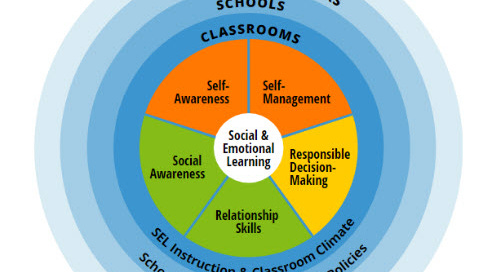What’s Really Behind Social Emotional Learning?
How SEL in schools is shaping your child’s mind—and why parents need to pay attention. (by C.Karena)
Social Emotional Learning (SEL) is increasingly embedded in Australian schools, presented as a tool to promote emotional well-being and social skills. However, many parents are now questioning whether SEL delivers on its promises—or whether it prioritises ideology over education.
James Lindsay, a prominent critic, describes SEL as “Marxism in disguise”—a program designed to reshape societal values without parental knowledge. The growing concerns include:
Undermining family bonds: Encouraging children to rely on schools instead of parents for emotional support.
Inappropriate topics: Introducing discussions on gender and body identity far too early.
Divisive teachings: Promoting a worldview centred on race, gender, or sexuality, fostering resentment rather than unity.
Activist training: Nudging children towards progressive ideologies instead of critical thinking.
Data mining: Collecting sensitive information about children for purposes unrelated to learning.
These concerns are no longer theoretical. Australian schools are already reflecting these trends.
At In Defence of Children, we believe:
"Schools should teach kids HOW to think, not WHAT to think. Teachers should help kids UNDERSTAND the world—not train them to CHANGE it according to a social justice agenda. Yet today, much of what’s being taught is hidden from parents."
[See evidence of this approach in school counsellor training:
Parental Rights Erases Kids | Stonewalling Parents]
This article examines what SEL claims to be, how it operates in schools, and why parents must safeguard their influence over their children.
What Is Social Emotional Learning (SEL)?
At first glance, SEL seems positive. Programs align with the U.S.-based CASEL framework, which promotes:
Self-awareness: Recognising emotions, thoughts, and values.
Self-management: Regulating emotions and achieving goals.
Social awareness: Empathy for diverse perspectives.
Relationship skills: Navigating healthy relationships.
Responsible decision-making: Constructive personal and social choices.
However, beneath these ideals lies a more concerning agenda.
A Hidden Ideological Agenda
CASEL explicitly promotes SEL through an “equity lens”, encouraging children to view the world as Critical Race Theorists, Gender Ideologists, and social activists do. In practice, this means, for example:
Teaching Australian history through a divisive Critical Race Theory lens, where anyone who is white or ‘white adjacent’ i.e. jews are labelled oppressors.
Embedding “transformative SEL” concepts like gender identity and equity, aligning with progressive frameworks like Diversity, Equity, and Inclusion (DEI).
Jennifer McWilliams, a former educator, warns:
“Because there's a reason that there is still a lot of people who do not understand what's happening, and it's because what is happening in the schools is extremely deceptive. So, whenever you come across something that sounds nice, I want you to always be in the habit of asking, through whose lens?”
[See: CASEL Conference Evidence]
Undermining Parental Authority
SEL often encourages emotional reliance on schools rather than families. Children are prompted to explore sensitive topics such as trauma, exclusion, and bullying.
While well-intentioned, experts like Abigail Shrier argue that this approach:
Amplifies emotional struggles: Focusing on trauma and “crises” can worsen mental health.
Fosters distrust: SEL narratives sometimes depict families as sources of trauma or conflict, weakening parent-child bonds.
Promotes secrecy: Schools encourage children to discuss private matters without parental involvement.
[Shrier explains more here: Why SEL Can Harm Kids]
Poor Results Despite Big Promises
Proponents claim SEL improves academic achievement, behaviour, and emotional well-being. Yet evidence from SEL-implemented regions paints a different picture:
Chicago: Despite widespread SEL, academic performance has plummeted.
Australia: The results are equally troubling:
Conclusion: Protecting Your Child’s Future
Parents, it’s time to critically evaluate what’s happening in your child’s school. While SEL markets itself as essential for emotional and social growth, its implementation often undermines family values and delivers poor outcomes.
Here’s how you can act:
Monitor SEL curricula: Ask for detailed lesson plans and materials.
Ask questions: What ideologies are embedded? Do they align with your family’s values?
Demand transparency: Push schools to justify SEL’s goals and outcomes.
Schools must return to their core purpose: teaching children the foundational knowledge and skills they need to succeed in life—not indoctrinating them with hidden agendas.
By staying informed and involved, you can ensure your children receive an education that supports your values, their well-being, and their future success.
Further Reading:







This is a great exposé on SEL, thank you. Here in New Zealand we recently exposed one such SEL 'psychosocial assessment tool for adolescents' that is being promoted to parents as a harmless 'wellness check'. Find out more here: https://letkidsbekids.substack.com/p/breaking-news-govt-funded-heeadsss?r=2v4wd0
After releasing the report and our first video, people reached out to us with their stories, and so we followed up with part 2 here: https://letkidsbekids.substack.com/p/heeadsss-analysis-part-2-testimonies?r=2v4wd0